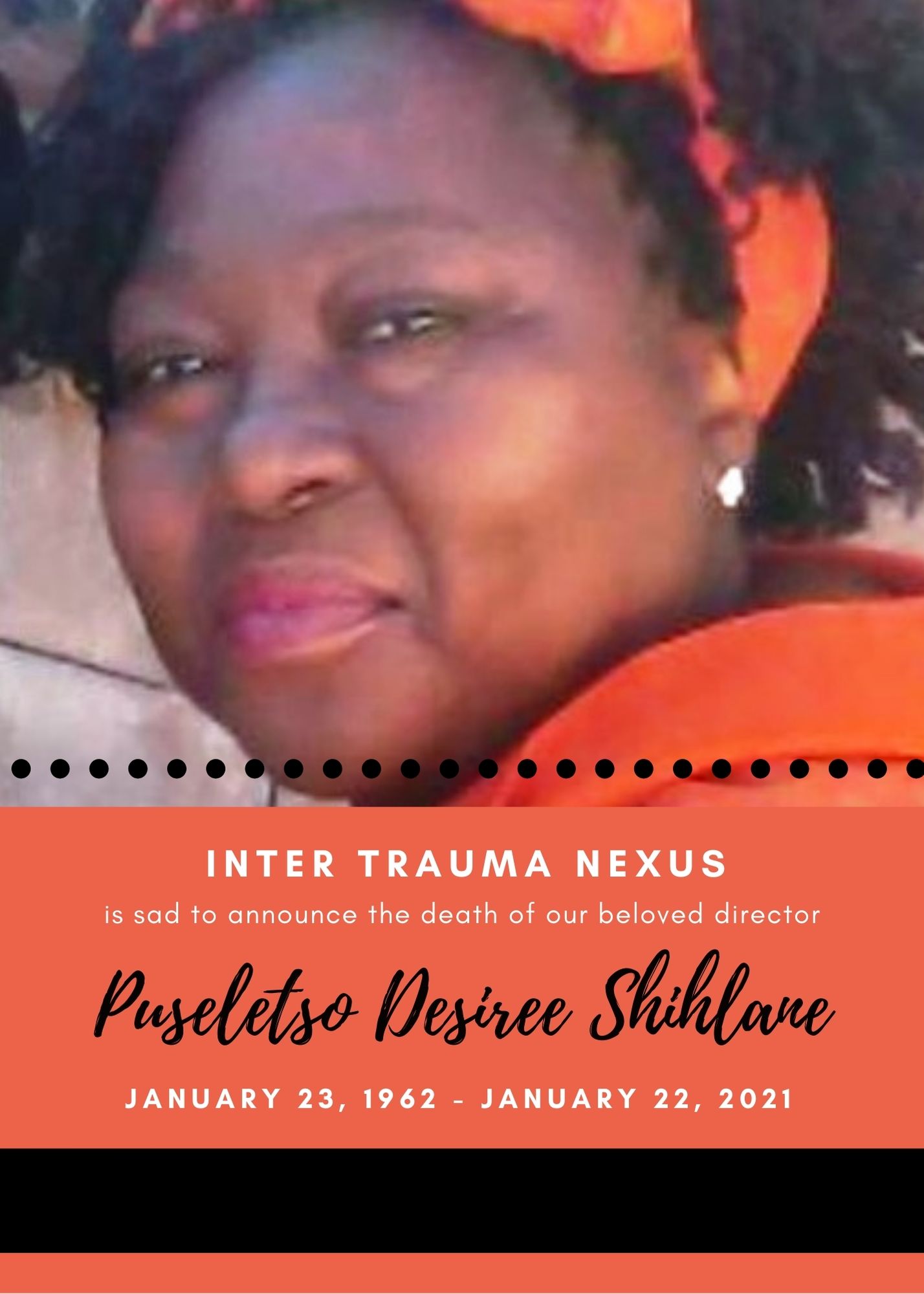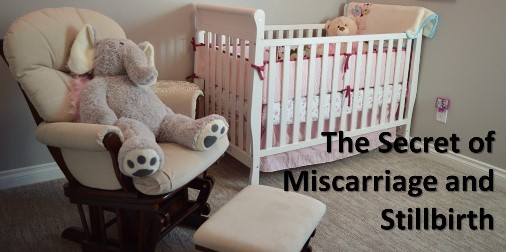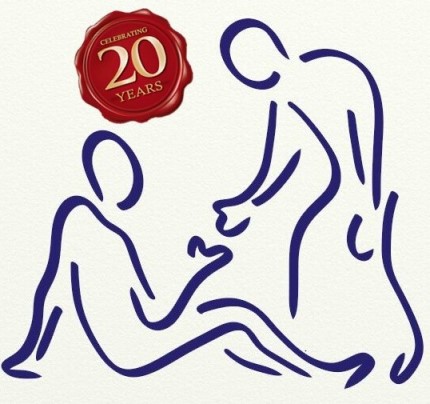Features
- Details
- Category: Features

Wounds That Whisper: Unmasking the Many Faces of Trauma
By Dr Barbara Louw
Today, words like trauma and stress are often thrown around casually — sometimes to describe a frustrating shopping experience or a missed opportunity. While this may seem harmless, it subtly dilutes the true weight of trauma, which isn’t merely inconvenience or irritation. It is the deep wounding that leaves us aching in ways that words struggle to carry.
When we rush to label, we lose the art of listening. We start responding from presumption instead of presence. Trauma is not just something you “get over” — it lingers, whispers, and reshapes one’s sense of self, purpose, and safety.
Trauma Isn’t Always Loud
It doesn’t always come with sirens or scars. Trauma can stem from circumstances that leave one powerless — a diagnosis, an unforeseen betrayal, or the slow decay of a once-supportive relationship. For many, the hurt hides in the familiar: a household that feels like walking on eggshells, subtle put-downs disguised as humour, or love delivered with conditions.
Some people live under one roof but feel utterly alone. They lack someone they can safely confide in. Their needs are frequently dismissed, leaving them feeling “in the way” or “too much”. Over time, these recurring emotional wounds shape how they understand love, worthiness, and normality.
Many carry paradoxical memories of childhood — moments of joy tangled with shadows of neglect or control. Emotional chaos becomes familiar territory, and self-worth is traded for survival. The past quietly scripts beliefs: My needs don’t matter. Vulnerability is dangerous. Chaos is normal.
Why Help Feels Hard
Those who’ve spent a lifetime as caregivers, fixers, or peacemakers often struggle to ask for help. They’ve been conditioned to prioritise others, to believe their wellbeing is optional. This silent narrative tells them that seeking support is weakness, that they must be self-sufficient at all costs.
These wounds manifest in low self-esteem, relational uncertainty, and spiritual emptiness. “I’m fine,” they say — not because they are, but because explaining the weight they carry feels like another burden. Finding language for emotional pain takes courage many were never taught to wield.
A Journey Toward Wholeness
Trauma wears many masks, but healing invites us to remove them with grace. While we cannot revise the past, we can respond differently to the present and rewrite our future. The invitation is wholeness — not perfection, but purposeful restoration.
It begins when we thirst for more: for healing, for hope, for righteousness. When we reach beyond pain to embrace the fullness of life, we discover we are not defined by what wounded us — we are restored by what we choose to pursue.
“Blessed are those who hunger and thirst for righteousness, for they will be filled.” — Matthew 5:6 NIV
It is time. Time to become well. Time to live whole.

Trauma-sensitive Pastoral Counselling is available on a fee-for-service basis.
- Details
- Category: Features

(This article was first posted in Afrikaans on Dr Barbara Louw's empowering blog, Hallo Nadia Webjoernaal .)
Faith vs Positivity
Hallo Nadia
Today I want to share a deep conversation from my heart with you. The name Nadia means hope and I like to share with you the origin of hope. The origin of hope is faith.
I noticed that when I talk about faith every conversation is swayed towards positivity. Positivity is quite a buzzword at the time because people talk about positive psychology and positive reinforcement in education. The positivity movement is about the mindset of being optimistic and not looking at life negatively. It is therefore a habit or outlook on life where you deliberately look at the positive in every situation. It's a beautiful idea, but it's not faith.
When I speak of faith, for me it is that deep inner knowing that is greater than my doubts, pain or any confused thoughts. It is an established spiritual knowledge that is greater than my life attitude or human reasoning. In Hebrews 11:1 I read: "To believe is to be sure of things hoped for, to be convinced of things not seen". Jesus said to Thomas: "Blessed are those who have not seen and yet believe".
I believe God is my Father and my Savior. Jesus also said: "But to all who accepted Him, those who believed in Him, He gave the right to become children of God". This is so much more than positivity because for me it is a matter of faith. A matter between me and God that cannot be changed by anything.
Nadia, I believe that the Bible is God's Word. I read in 1 Corinthians 12 about the gifts of God that include faith, healing and miracles (Please read the whole chapter). Today I can tell you without a hint of doubt that I believe that God works miracles and makes dreams come true. I believe that I am surrounded by God's grace. No diagnosis of stroke, cancer or any illness will make me doubt God's healing power, because I believe He is my Physician.
Faith is therefore a very personal matter that each of us must resolve with our Creator, before life hits us, in the middle of every life storm and when we wonder what hit us. The fact that bad things happen in life is real and a positive outlook on life helps us to get up faster.
I will dare to have firm trust in God's grace every day, which enables me to make decisions in grace and live in love. My faith says that I know God can do far more than I could ever imagine.
Nadia, love your faith!
If you feel down and exhausted, you are welcome to make an appointment so that I can help you pick your head up again. I'm a call away. You can book an appointment yourself without any third party asking a lot of questions by going to my website for online and in-person appointments.

- Details
- Category: Features

Counselling versus talking to you friend
Talking to a friend may be free of charge, but working with a counsellor will give you the cognitive and therapeutic skills to live a happier life.
When we don’t completely understand what professional counselling is, it’s easy to assume it can’t be more beneficial than talking to a friend. Like a relationship with a friend, seeing a counsellor involves conversing with someone, being vulnerable and maybe receiving advice. If counselling was only about paying someone to let you vent or chat with them, it actually would be a waste of money.
The ‘talking’ aspects of counselling are only a very small part of the therapeutic journey.
- Details
- Category: Features

- Details
- Category: Features

Most ladies don’t talk about their experience of losing a baby early in pregnancy. The most prevalent reason for keeping quiet is people’s dismissive reaction, if they find out. For example:
- It was just a foetus, not a real baby yet.
- It was for the better – nature takes care of those who are too weak to survive.
- There will be many other opportunities to get pregnant again.
- Fortunately you have other kids.
These random remarks often comes from men or women who never went through the experience.
The first indifferent reactions are often from medical personal, who have seen such situations numerous times in their practices. However, this mommy-to-be lost her hope and dream to have a baby. This is an event that will change her forever. There is no consolation in all the apathetic comments that people air. Her hopes are replaced with fear, anger, guilt and shame.
The only person who are in a worse predicament is the man who used to be the daddy-to-be. He is invisible and nobody even thinks that he is affected in any way. He does know how to help or to fix his family. Suddenly, his wife seems to be a different person.
In my next workshop I am looking at this life event from all angles. I hope to address the secrets, myths and misconceptions. Let’s look at how we can understand each other a little better and offer support.
This online workshop is for every lady, counsellor, pastor and husband. Let’s bring comfort and hope in one of the darkest times in a women’s life.
How do we make a difference?
Aquilla Training’s online workshop library is growing at a steady rate, as we add at least two online workshops per month. We help you to stay up-to-date which gives you the confidence of knowing you are working with best practices.
You are being supported within our caring and supportive learning environment from which you can develop and grow. You can access your learning anytime you want ... anywhere you choose ... using any device type — desktop or mobile. The online workshops can be accessed at any time - 24 hours a day, 7 days a week and 365 days a year.
After the workshop was published you can enrol at any time and work at your own pace. No unreasonable deadlines or other limitations. This means professionals can accumulate CPD points - no travel and accommodation required. Certificates are downloadable when you completed the final workshop assessment.
Some of the popular topics available online are:
Support in a disaster (COVID-19 pandemic support) 52 short sessions - FREE!
Therapeutic value of art and play
Miscarriage and stillbirth (NEW –to be released 30 June 2020)
Burning Infertility (NEW – soon to be released)
Wisdom for ministry – weekly sessions for Association for Christian Ministries (A4CM) - NEW –to be introduced on 1 July 2020 at 14h00.
Afrikaans
Ondersteuning ten tye van ‘n ramp (COVID-19 pandemie) 52 – kort sessies - GRATIS!
Terapeutiese waarde van kuns en speel
Miskraam en stilgeboorte (NUUT – word op 30 Junie 2020 vrygestel)
Brandende onvrugbaarheid (NUUT – word binne kort vrygestel)
Wysheid vir bediening – weeklikse sessies vir A4CM – word op 1 July 2020 om 14h00 bekengestel.
- Details
- Category: Features
The team at Inter Trauma Nexus faithfully kept on working to serve our clients deuring the COVID-19 lockdown.
In October 2019 we started to publish workshops online. Fortunately, we formed the necessary partnerships to create Aquilla Training earlier last year. These were the two most important decisions allowing us to help people during this time. We are serving people by presenting the Support during a disaster and Ondersteuning gedurende 'n ramp free of charge. Another venture that we enbarked on is the daily electronic newsletters for the friends on Inter Trauma Nexus.
The workshops and newsletters are sponsored by our staff and donors to help as many people as possible. Our commitment remains to comfort, challenge and encourage people. The ministry focus is to see people as capable and creative people who may sometimes go through hard time, but by the grace of God we can help people to put the pain and trauma behind them. The workshops and newsletters are tools to help you to become well and whole.
"The therapeutic value of art and play” is my latest online workshop for teachers, parents, counsellors and people who enjoyed being kids. We looks at the value of spontaneous play and art making, as well as the value of folk art in our communities. This workshop will give you a new perspective on how valuable art, craft and play can be without burdening anyone for an artificial outcome. We explore spontaneous art and natural play; handicraft; folk art and culture as tools of self-expression and creativity, leading to healing, learning and wholesome pleasure. (Afrikaans - Therpeutiese waarde kan kuns en speel)
- Details
- Category: Features

Facing self-harm and loss?
Do you have the courage to face issues like self-harm and loss?
This question is not about performing a job of practicing your profession. The answer will have everything to do with being human.
It takes courage to stand up and say “I want to make a difference”. You don’t know whether you are doing or saying the right things. There is no real life manual with step-by-step directions and answers. Life is for the living and when we are brave enough to reach out to others we will a positive impact.
In the past people whispered about self-harm or suicide behind cupped hands. The shame and finger pointing were unbearable, but the increase of hopelessness and helplessness seem to increase with every pay-day. More and more people are facing the prospect of losing their income and livelihood.
- Details
- Category: Features
The World Health Organization reports that “Close to 800 000 people die due to suicide every year, which is one person every 40 seconds. Suicide is a global phenomenon and occurs throughout the lifespan. Effective and evidence-based interventions can be implemented at population, sub-population and individual levels to prevent suicide and suicide attempts. There are indications that for each adult who died by suicide there may have been more than 20 others attempting suicide”.
It is reported that in South Africa 9 percent of all teen deaths are caused by suicide. The fastest growing age is young people under the age of 35, specifically female suicides which peak between 15 to 19 years.
Some counsellor prefer not to use the term suicide, but rather self-harm. Self-harm is then defined as any act of deliberate self-poisoning or self-injury, regardless of motivation, and self-harm mortality is a death resulting from such an act.

(Picture: pxfuel.com)
Youth are at risk because they face a number of social, economic and health challenges that contribute to self-harm behaviours, including the emotional and mental stress associated with high unemployment rates, poverty, HIV/AIDS, educational difficulties, physical and emotional abuse, parental separation and substance abuse.
Pregnancy increases the likelihood that young females in SA will commit suicide. Fertility rates among youth in SA are high, with 36.6% of females aged 15 - 24 years have at least one child. Many women aged 15 - 24 years, are single mothers. Self-harm ideation and behaviours could therefore be the result of young women feeling abandoned by their partners, stigmatised by their families, and have serious financial problems.
Hanging was the main cause of self-harm mortality among youth. One possible reason for hanging can be regarded as a 'clean method' that does not cause harm to the body (e.g. bloodshed and dismemberment), requires little planning, and is an accessible method that does not require weapons or pharmaceuticals, which can be difficult to access.
Pesticide poisoning is currently the most common method of self-harm mortality worldwide.
People who have attempted suicide before are particularly vulnerable.
What to look out for:
Identifying the intention of these behaviours is pivotal to the implementation of successful prevention strategies.
Be concerned about depressed persons if at least five of the following symptoms have been present nearly every day for a week:
- Depressed mood and morbid conversations
- Change in sleeping patterns - disruptive nightmares all the time
- Change in appetite or weight - no appetite
- Speaking or moving with unusual speed or slowness
- Fatigue or loss of energy
- Feelings of worthlessness , self-reproach or guilt
- Thoughts of death, funerals or suicide
Additional factors that point to an increased risk for suicide in depressed individuals are:
- Extreme anxiety, agitation or enraged behaviour
- Excessive drug and / or alcohol use or abuse - including "natural" drugs preparations
- History of physical, physological or emotional unwellness
- Feelings of hopelessness, helplessness, embitterment or desperation
75% of all suicides give some warning of their intentions to a friend or family member. All suicide threats and attempts should be taken seriously.
If a family member or friend confides in you that they are experiencing suicidal thoughts it is important to consider how challenging and risky it may have felt for them to do so. It is quite possible that this person is fearful of being judged.
Avoid minimising the problems that may have led to the suicidal thoughts: saying something like ‘it’s not that bad’ is not helpful.
Encourage the person with suicidal ideation to contact their local GP and local counselling service.
Sources:
de Wet, N. (2017). Gendered risk factors associated with self-harm mortality among youth in South Africa, 2006 - 2014. SAMJ: South African Medical Journal, 107(12), 1132-1136.
http://www.sadag.org/
https://www.who.int/mental_health/prevention/suicide/suicideprevent/en/
New Online Workshops
Helping Grieving Children starts 29 February 2020
Reality of Suicide starts 31 March 2020
Nuwe aanlynberadingswerkswinkels in Afrikaans!
Hoe om Kinders wat Rou en Treur te help – begin 29 Februarie 2020
Die Werklikheid van Selfdood – begin 31 Maart 2020.
- Details
- Category: Features
(Article by Dr Barbara Louw)
 Most people expect to walk into a counsellor’s office and after an hour emerge problem free, healed and whole. Of course there are the naysayers who walk into the same office with the notion that nobody will ever be able to ‘fix’ them.
Most people expect to walk into a counsellor’s office and after an hour emerge problem free, healed and whole. Of course there are the naysayers who walk into the same office with the notion that nobody will ever be able to ‘fix’ them.
The truth is that 98% of people will feel better after a single session where they used the opportunity to share their worries, concerns and pain. The initial relief might enable some to refocus and work through the challenges, while other might need a few more counselling sessions.
Counselling is a therapeutic process where a counsellor guides you to do the essential work to ensure grow towards wellness. The therapeutic work that is necessary will include taking appropriate responsibility, making changes and adapt enough to set new life goals.
The real work starts with continued commitment to achieve these goals and engaging in new behaviour patterns which prevent you from going back to you ‘old ways’. The success of your counselling process is largely dependents on your commitment and willingness to change.
How can you get the best from your counselling relationship?
- Be committed to become well.
- Choose the best available counsellor who specialises in dealing cases like the problems you face. Reputable counsellors have no problem to give account of their education and professional registration status.
- Make sure of the fees and contractual detail.
- Be honest with yourself and your counsellor. Keeping secrets and withholding strategic fact disempowers the counsellor from formulating a comprehensive picture of what the challenges and obstacles are and how to address your unique situation.
- Do your homework diligently.
- Adjust your sleeping pattern and sleep well to allow you to enhance the healing process.
That being said, why are some people dissatisfied with their counselling experiences? There are a number of reasons that I would like to highlight.
- The main question is: Why do you make an appointment for counselling? Your answer will be a significant indication of the outcome of therapeutic process. If you come for counselling to please someone, we are wasting precious time. If you sit in my office saying “My sister forced me to come…” or “My manager sent me, but I don’t need any help...” the outcome will be poor. You are not committed and you enrolled your sister or manager for blame if the process fails.
- Some people are affected by the perception that there is a stigma to getting counselling. They are scared to be ‘analysed’ or that the counsellor may think they are ‘crazy’. Starting from this point severely limits the possibility to helping you.
- Arriving for a counselling session when you are numbed out or high on substance is counterproductive.
- However, there are clients who are in love with the drama of life. Counselling is of little value for them, because they found ‘identity’ in their drama and stormy relationships. Their storms and gossip became more important than being a responsible adult.
- The last group that will not benefit from counselling are the people who are reluctant to get help. They believe they have all the answers. They have multitude of advisors, counsellors and pastors, but they listen to none. What will make a counselling session with the next counsellor any different?
Counselling doesn’t work, because you have to do the work to get away from a problem-saturated way of thinking. A good counsellor will guide you on a journey with a clear therapeutic road map towards wellness.
For more information about counselling and training you can send an email to us.
- Details
- Category: Features

This Wholistic Wellness Coaching Model is a ten tier tool to help you to grow in every area in your life.This model was designed as part of Dr Barbara Louw's PhD studies and various workshops. She made it available for you to download, share and utilize to grow towards wellness.
In the workshops she trains people to tutilize this model, with all the elements and dynamics that underpind these ten tiers. The greatest benefit of the model is that the client, counsellor and coach experience grow and positive change from the very first session.
Click on the Afrikaans button to download the Afrikaans version of the model.
- Details
- Category: Features

(This article was originally written for the Association of Christian Counsellors in SA in 2017)
The notion of a network is well demonstrated when thinking about computers on a network which are linked through cables, radio waves or satellites. The purpose of the connection is to work together and share information in a manner that is efficient and synergetic.
In the world of business, networking can be described as intermingling with people to exchange information and meet new contacts, especially to further a business or career.
In the ministry of pastors and counsellors this skill is often overlooked and neglected. The reasons for this oversight can vary from being too busy, seeing more than enough people with problems or not knowing where to start. Maybe the question is: “Why bother?”
In our ministry, Inter Trauma Nexus, we found that networking is essential when working in a community. Nexus actually means ‘network’. The reality is that trust relationships are not formed in a crisis. When crisis and trauma hits people’s lives, sound relationship must already be in place if we wish the serve and minister in a community.
We define a sound relationship as a relationship where we can encourage, support and even challenge each other to grow towards a dynamic relationship with God and other people.
- Details
- Category: Features
Inter Trauma Nexus focuses on four main themes of trauma intervention to enhance healing and wholeness. These areas are the posttraumatic reality of trauma; acute and ongoing trauma; anticipated crisis and trauma; as well as spiritual crisis and trauma.
The posttraumatic reality of trauma includes normal posttraumatic stress reactions (PTSR) and the need to normalize various aspects of life after hurtful experiences. This theme includes posttraumatic stress disorder (PTSD); posttraumatic embitterment reaction (PTER) and posttraumatic embitterment disorder (PTED). Our aim is help people deal with the reactions, effectively and swiftly to prevent disempowering patterns of behaviour and disabling disorders.
















